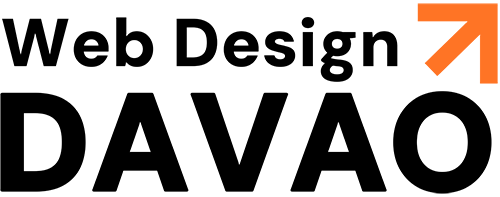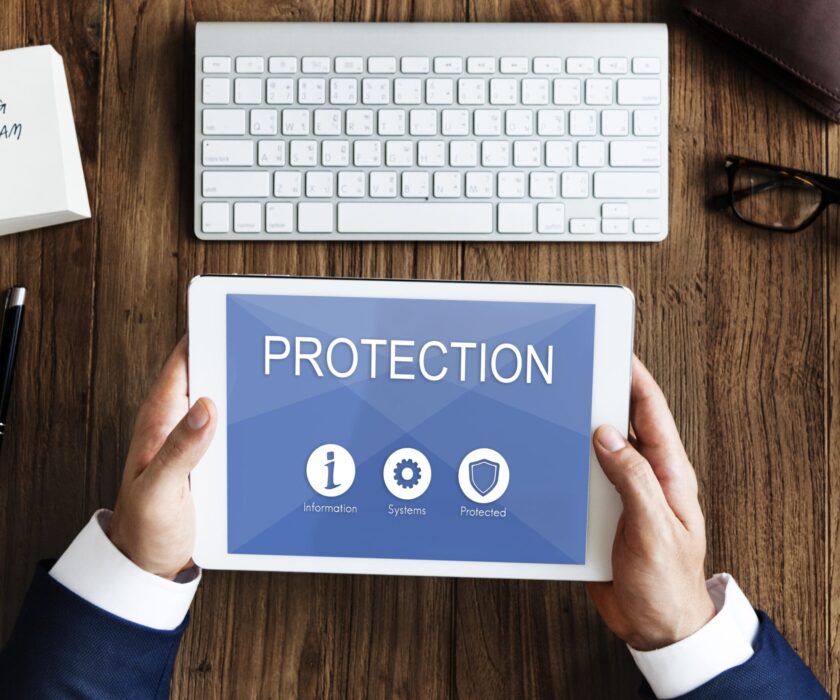Why Secure Web Hosting Matters More Than Ever
In today’s digital landscape, security is paramount. With the constant surge of cyber threats, securing your website has never been more critical. From personal information to business data, a breach can have far-reaching consequences that damage not only your site but your entire reputation. Secure web hosting isn’t just a precaution; it’s an investment in your website’s integrity and its SEO performance. Let’s explore why this is so important and how it can positively impact your business.
The Growing Threat to Online Security
Online security threats are growing at an alarming rate. With each new advancement in technology, cybercriminals find more sophisticated ways to exploit vulnerabilities. Data breaches, ransomware, phishing attacks, and other malicious activities can compromise sensitive information, damage your brand’s trust, and expose you to costly legal consequences. This constant threat makes it essential for websites to adopt robust security measures from the ground up. Secure web hosting offers a vital line of defense, ensuring that your website remains protected from the ever-evolving world of cyber threats.
The Impact of Website Security on Business Reputation
A compromised website can severely damage your reputation. Users expect their data to be protected, and failure to provide that assurance can cause them to abandon your site. More importantly, a hacked site can lead to negative publicity and lost customers. Trust is the cornerstone of online business, and security plays a key role in building and maintaining that trust. By investing in secure hosting, you demonstrate to your visitors that you prioritize their safety, which in turn strengthens your brand’s credibility.
What is Secure Web Hosting? Understanding the Basics
Defining Secure Web Hosting in Simple Terms
At its core, secure web hosting refers to a hosting service that incorporates robust security measures to protect your website from unauthorized access and cyber threats. It goes beyond basic website management by offering encryption, secure protocols, firewalls, and regular security updates. A secure hosting environment safeguards your website’s files, databases, and user data, ensuring that your website remains operational and protected at all times.
Key Features of Secure Web Hosting
Secure web hosting isn’t just about keeping hackers out; it’s about maintaining a comprehensive security system. Some of the key features include:
- SSL Certificates: Encryption that ensures data exchanged between the server and the user is secure.
- Regular Backups: Continuous data protection, allowing you to restore your website in case of a breach.
- DDoS Protection: Safeguarding your site against traffic overloads caused by malicious attacks.
- Firewalls: Layered defenses that block unauthorized access to your website.
- Two-Factor Authentication: Extra protection for server logins to prevent unauthorized access.
Each of these features contributes to maintaining the integrity and security of your site, ensuring that your data is always protected.
The Role of SSL Certificates in Web Hosting Security
How SSL Certificates Protect Your Website and Visitors
An SSL certificate is one of the most fundamental security tools in web hosting. It encrypts data transferred between your website and its visitors, making it unreadable to any malicious actors attempting to intercept it. This encryption prevents hackers from stealing sensitive data, such as passwords, credit card numbers, and personal details. Visitors to your site can also feel more confident knowing that their connection is secure, as SSL certificates are identified by a padlock symbol in the browser’s address bar.
The SEO Benefits of SSL Certificates: A Hidden Boost
While SSL certificates are primarily designed for security, they also offer significant SEO benefits. Google has confirmed that HTTPS (enabled by SSL) is a ranking factor, meaning secure websites are more likely to appear higher in search engine results. This is part of Google’s effort to encourage safer browsing for users. Additionally, websites with SSL certificates often experience lower bounce rates, as users are more inclined to trust and stay on secure sites, further improving SEO performance.
Data Protection and Privacy: The Core of Secure Hosting
How Secure Hosting Safeguards Personal and Business Data
For businesses, the protection of customer and user data is not just a legal requirement but also an ethical one. Secure web hosting prevents unauthorized parties from accessing sensitive data, whether it’s customer information, transaction history, or business communications. With data breaches on the rise, it’s crucial to choose a hosting provider that adheres to high standards of data protection.
Encryption and Its Role in Keeping Data Safe
Encryption plays a pivotal role in secure hosting. By converting data into unreadable code, encryption ensures that even if it’s intercepted, it remains meaningless without the decryption key. This protects sensitive information, such as login credentials and financial data, from being accessed by cybercriminals. Encryption should be a core feature of any secure hosting service to ensure that data remains protected from prying eyes.
How Secure Hosting Enhances SEO Rankings
Google’s Stance on Website Security and SEO
Google has long made it clear that security is a priority. In fact, the search engine giant rewards secure websites by giving them higher rankings in search results. Websites with SSL certificates are flagged as “secure” in search results, which builds trust with users and improves click-through rates. The correlation between website security and SEO ranking is undeniable, and secure hosting plays a pivotal role in this process.
HTTPS as a Ranking Factor: What You Need to Know
With HTTPS now a confirmed ranking factor, secure hosting directly impacts your search engine visibility. Google considers secure sites more trustworthy and gives them preferential treatment in search rankings. This means that websites without SSL certificates or secure hosting are at a distinct disadvantage when competing for top spots on Google.
Reducing Bounce Rates with Secure Hosting
Bounce rates, which refer to the percentage of visitors who leave your site after viewing only one page, are often influenced by user trust. Websites without secure hosting or SSL certificates are often flagged as insecure, prompting users to abandon them quickly. On the other hand, secure hosting fosters a sense of safety, encouraging visitors to stay longer, explore more pages, and engage with your content. This reduced bounce rate can positively impact SEO rankings, signaling to search engines that your site provides value to users.
Choosing the Right Hosting Provider for Maximum Security
What to Look for in a Secure Hosting Provider
When selecting a hosting provider, security should be a top consideration. Look for providers that offer features such as SSL certificates, DDoS protection, regular security updates, and 24/7 monitoring. Additionally, choose a provider that uses advanced encryption methods, offers data backups, and provides secure login protocols. These features work together to create a secure hosting environment that helps protect both your website and its visitors.
Questions to Ask Before Signing Up for a Hosting Plan
Before committing to a hosting provider, ask the following questions:
- What security protocols do you have in place?
- Do you offer SSL certificates and encryption?
- How frequently do you perform security updates?
- What backup solutions do you provide?
- How do you handle DDoS attacks and other threats?
The answers to these questions will help you determine whether a provider’s security measures align with your needs.
Common Security Threats and How Secure Hosting Prevents Them
Malware and Ransomware: How Secure Hosting Defends Against Attacks
Malware and ransomware are common threats that can cripple your website, steal sensitive data, and lock you out of your own site. Secure hosting services defend against these attacks by offering real-time monitoring, automatic malware scans, and rapid incident response. By keeping your website constantly monitored for threats, secure hosting minimizes the risk of a successful attack.
DDoS Attacks: What They Are and How Secure Hosting Fights Back
A Distributed Denial of Service (DDoS) attack floods a website with traffic, causing it to crash or become unreachable. Secure hosting providers offer DDoS protection, ensuring that your site remains accessible even during an attack. With advanced firewall and traffic filtering technologies, secure hosting can detect and mitigate the effects of a DDoS attack before it disrupts your site.
The Importance of Regular Backups in Web Hosting Security
How Backups Protect Against Data Loss and Cyber Attacks
Backups are an essential part of any secure hosting plan. In the event of a cyberattack or server failure, having regular backups ensures that you can quickly restore your site to its previous state. Whether it’s recovering from malware, ransomware, or accidental data loss, backups provide a safety net that minimizes downtime and prevents permanent data loss.
Automating Backups for Peace of Mind
To avoid the risk of losing critical data, many hosting providers offer automated backup services. These backups run on a set schedule, ensuring that your website’s data is regularly saved without you having to manually initiate the process. Automated backups offer peace of mind, knowing that you can recover your site at any time without fear of data loss.
Additional Security Features to Look for in Web Hosting Plans
Firewall Protection and Intrusion Detection Systems
Firewalls act as a barrier between your website and external threats, blocking unauthorized access attempts. Intrusion detection systems (IDS) monitor website activity for signs of malicious behavior, alerting you to potential breaches before they can cause significant damage. Both of these features are critical for maintaining a secure web hosting environment.
Two-Factor Authentication: Adding an Extra Layer of Defense
Two-factor authentication (2FA) adds an extra layer of protection to your website. With 2FA enabled, even if a hacker gains access to your password, they won’t be able to log in without the second factor—usually a code sent to your phone or email. This added security measure drastically reduces the risk of unauthorized access to your site’s control panel.
The Long-Term Benefits of Investing in Secure Hosting for SEO and User Trust
Building User Trust Through Secure Hosting
When users see that your website is secure, they are more likely to trust your brand. Secure hosting builds confidence by protecting their personal data and providing a safe browsing experience. This trust can translate into higher conversion rates, increased sales, and stronger customer loyalty.
How Security Affects Long-Term SEO Performance
Secure hosting is an investment in the long-term success of your website’s SEO. By ensuring that your site remains secure, you reduce the risk of penalties from search engines, improve your rankings, and enhance user engagement. Ultimately, the security of your site contributes to a more positive user experience, which is a key factor in sustained SEO performance.
Secure Web Hosting as a Strategic Advantage
Recap: Why Secure Hosting is Crucial for Your Website’s Success
In today’s digital age, secure hosting is no longer optional—it’s essential. It not only protects your website and data from cyber threats but also enhances your SEO performance and builds trust with your users. By choosing a secure hosting provider, you’re taking the first step in safeguarding your website’s future.
Final Thoughts: How to Take Action and Protect Your Website Today
If you’re ready to take your website’s security to the next level, start by researching secure hosting providers that offer the features discussed here. With the right hosting plan, you can protect your data, boost your SEO rankings, and create a safer, more reliable website for your users.
We’re here at Web Design Davao to help you create a secure and reliable website that works for you. Don’t leave your website’s security to chance—take the necessary steps today to protect your online presence. Contact us to find out how we can support your website security and help you get started.




